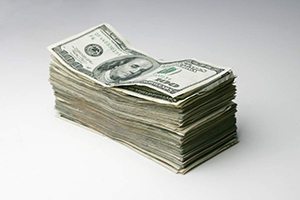The world’s leading foreign exchanges have drawn up a code of practice aimed at stopping traders from manipulating currency prices.
Led by the Financial Stability Board (FSB), eight foreign exchange markets have signed up to the code.
An investigation by the FSB uncovered problems with two foreign exchange benchmarks –the WM/Reuters London Fix at 4pm each day and European Central Bank (ECB) reference rate set at 2.15pm each day.
An analysis of foreign exchange transactions showed that traders tend to put their deals through at the time of the London fix.
The volume of trades also increases around the ECB fix, but not as markedly as for London.
Surge in deals
This surge in deals just before the fixes means traders are settling foreign exchange contracts on an unknown rate that is set a few minutes later.
The FSB revealed that this could allow some traders and banks to collude to manipulate the rates to make a profit.
To stop currency exchange rate manipulation, the FSB is proposing the WM/Reuters London Fix is changed from just one minute to a longer period – with a recommendation of at least five minutes.
The money markets are also suggesting the London Fix takes in more data from a wider range of sources to help set the rate.
The markets will also publish reference rates and information about how they are calculated.
The information was published by the FSB and the eight market regulators, including the Bank of England in the report Global Preamble: Codes of Best Market Practice and Shared Global Principles
Market manipulation
“The guidance alongside exemplary ethical behaviour is of the utmost importance to a global foreign exchange market that functions correctly,” said a Bank of England spokesman.
“The code makes clear what the markets expect in terms of personal conduct, confidentiality and procedures for executing transactions.”
Regulators in each of the eight markets have pledged to work to the code.
The markets are in Australia, Canada, Europe, Hong Kong, London, New York, Singapore and Tokyo.
“Sharing the principles and working to prevent market manipulation is in the best interests of everyone but the few who try to make a profit out of influencing the fixes,” said the spokesman.
“We are delighted that the code will be adopted after many months of hard work.”
